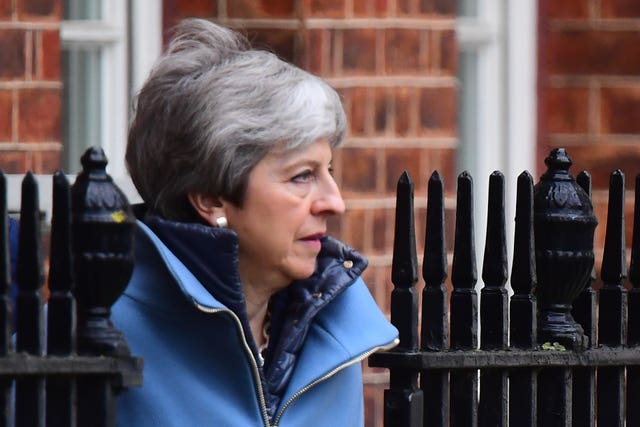The white paper on online harms suggests holding tech executives personally liable for breaches of a new duty of care standard and large fines.
Government Unveils Plans For Tough New Online Safety Laws
The white paper on online harms suggests holding tech executives personally liable for breaches of a new duty of care standard and large fines.

The Government will introduce “world first” internet safety laws designed to make the UK the safest place in the world to be online, new proposals claim.
A white paper on online harms, published jointly by the Department for Digital, Culture, Media and Sport (DCMS) and the Home Office, proposes strict new rules be introduced that require firms to take responsibility for their users and their safety, as well as the content that appears on their services.
It suggests punishing social media companies with large fines or blocking them from being accessed.
Overseen by an independent regulator, internet companies which break these rules could even see senior management held personally liable for the failings.
A newly introduced duty of care will require firms to take more responsibility for the safety of users and more actively tackle the harm caused by content or activity on their platforms.
The regulator will have the power to issue “substantial fines, block access to sites and potentially impose liability on individual members of senior management”.
However, the proposals have prompted warnings that oversight should not amount to state censorship.
A 12-week consultation will now take place before ministers publish draft legislation.
The proposed measures are part of a Government pledge to make the UK one of the safest places in the world to be online, and comes in response to concerns over the growth of violent content, encouraging suicide, disinformation and the exposure of children to cyberbullying and other inappropriate material online.
A number of charities and campaigners have called for greater regulation to be introduced, while several reports from MPs and other groups published this year have also supported the calls for a duty of care to be implemented.
Prime Minister Theresa May said the proposals were a sign the age of self-regulation for internet companies was over.

“The internet can be brilliant at connecting people across the world – but for too long these companies have not done enough to protect users, especially children and young people, from harmful content,” she said.
“Online companies must start taking responsibility for their platforms, and help restore public trust in this technology.”
The Home Secretary, Sajid Javid, added that tech firms had a “moral duty” to protect the young people they “profit from”.
“Despite our repeated calls to action, harmful and illegal content – including child abuse and terrorism – is still too readily available online,” he said.
“That is why we are forcing these firms to clean up their act once and for all.”
Vital discussions at G7 around online terror content – especially after horrors of Christchurch. I made clear our upcoming Online Harms White Paper will ensure social media firms take more responsibility. Much more global action needed in this area #G7France (1/2) pic.twitter.com/Kc9aMPCIRG
— Sajid Javid (@sajidjavid) April 4, 2019
The proposed new laws will apply to any company that allows users to share or discover user-generated content or interact with each other online, the Government said, applicable to companies of all sizes from social media platforms to file-hosting sites, forum, messaging services and search engines.
It also calls for powers to be given to a regulator to force internet firms to publish annual transparency reports on the harmful content on their platforms and how they are addressing it.
Companies including Facebook and Twitter already publish reports of this nature.
Responding to the proposals, Facebook’s UK head of public policy Rebecca Stimson said: “New rules for the internet should protect society from harm while also supporting innovation, the digital economy and freedom of speech.
“These are complex issues to get right and we look forward to working with the Government and Parliament to ensure new regulations are effective.”
Peter Wanless, chief executive of children’s charity the NSPCC – which has campaigned for regulation for the past two years – said the proposals would make the UK a “world pioneer” in protecting children online.
“For too long social networks have failed to prioritise children’s safety and left them exposed to grooming, abuse, and harmful content,” he said.
“So it’s high time they were forced to act through this legally binding duty to protect children, backed up with hefty punishments if they fail to do so.”
However, there have been warnings that the proposals could amount to state censorship.
“These things are always justified as being for good, kind and worthy objectives, but ultimately it’s giving power to a state regulator to decide what can and cannot be shown on the internet,” Victoria Hewson, of the Institute for Economic Affairs think tank, told the BBC.
“Maybe the authorities should be trying to stop these things at source.”
Former culture secretary John Whittingdale warned ministers risked dragging people into a “draconian censorship regime” in their attempts to regulate internet firms.
Writing in the Mail On Sunday, he said he feared the plans could also “give succour to Britain’s enemies”, giving them an excuse to further censor their own people.
Thanks for signing up to Minutehack alerts.
Brilliant editorials heading your way soon.
Okay, Thanks!

